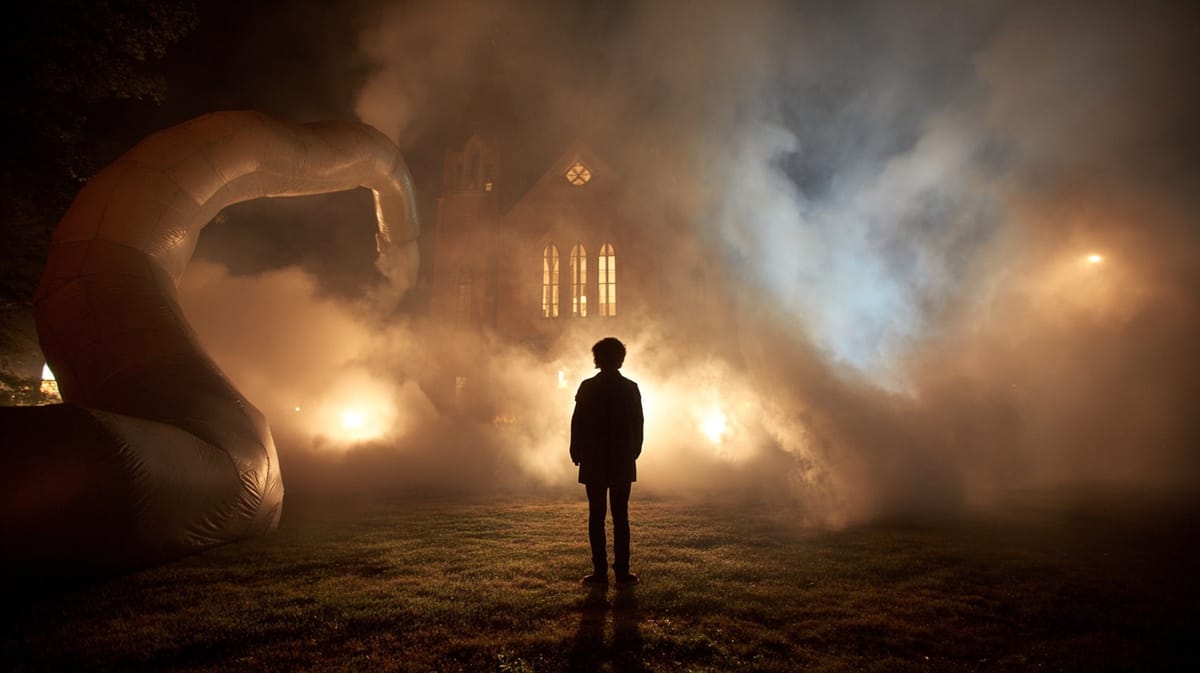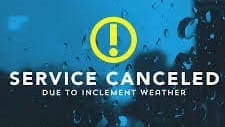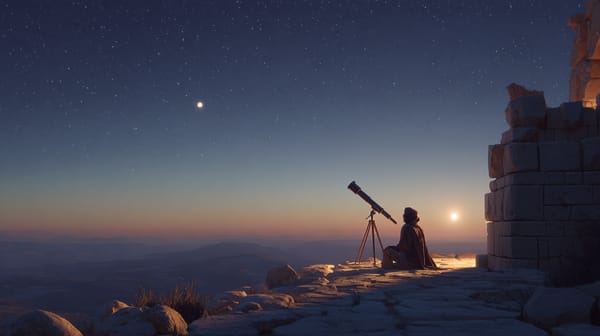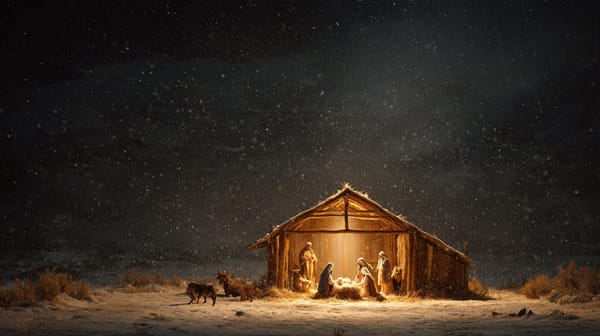Fairhaven Sermon 10-12-2025

Summary
In this week’s service, Rev. Dylan Parson explored the fascinating juxtaposition of our cultural obsession with Halloween and a seeming decline in religious participation. He observed that Americans are increasingly drawn to themes of death, ghosts, and the supernatural, spending billions on Halloween festivities while church attendance dwindles. He challenged the congregation to consider why we, as a faith community, might be hesitant to engage with the supernatural realities that scripture affirms.
Drawing from readings in Leviticus and Mark’s Gospel (specifically the story of Jesus and the Gerasene demoniac), Rev. Parson emphasized that acknowledging the presence of spiritual forces—both individual and systemic—is crucial to our faith. He highlighted how Jesus’s actions, like casting out demons, often disrupted the status quo and challenged comfortable systems. He urged the congregation to consider whether we are willing to embrace the unsettling freedom that comes with confronting evil, or if we would rather cling to familiar, albeit flawed, structures. Ultimately, he called on the congregation to actively participate in Jesus’s ongoing work of liberation and resist the temptation to passively accept a world marked by spiritual darkness.
Transcript
My strong impression is that popular interest in Halloween has exploded over the last decade or so. And maybe that's just because the Chinese imports have gotten really good and you got a skeleton in everybody's yard or an inflatable or something. It's never been a small thing in my lifetime, but now it's huge. So as of last year, I looked at some numbers here.
Over half of Americans dress up for Halloween, kids and adults. That shoots actually up to 60% if you're looking at people about 40 and under. Almost half of Americans start shopping for Halloween more than a month in advance. And.
And stores begin putting out Halloween supplies as early as April. Home Depot apparently calls that their halfway to Halloween sale, which sounds very unappealing to me. We live in a culture that is just obsessed with the things that we're supposed to fear. There's something about Halloween that gets us these days.
And so this season, Americans will spend $12 billion on Halloween embracing death, ghosts, the supernatural. But consider this at the same time. Even as our cultural appetite for this stuff, for the mysterious, explodes the church, this institution that's built on spiritual things, the incarnation, the resurrection, the Holy Ghosts. is a retreat.
Religious participation in America is at a 200-year low, depending on the numbers you look at. And younger generations are more likely to say that they're not really anything than anybody ever has in the past. Even usually whenever people weren't going to church very often, everybody was like, well, I'm a Christian, though. I just don't participate.
So on one hand, people are deeply into this holiday, more than ever, where the supernatural is front and center, where ghosts and witches and goblins are everywhere. Everywhere we turn reminds us of death. That's something we generally avoid in our culture at all costs, but this is a whole month that we just surround ourselves in it. Last night was the night market in Allentown, which the whole thing is basically.
.. skulls and tombstones and all that stuff. Thousands of people.
The horror-themed gym across the street from my house hosts a monthly event called the Sunday Sabbath. They do like yoga or something. The name makes me grip my teeth, but that's another story. And I guarantee you that on a Sunday morning church hour, they get quite a few more people in there than we do.
Meanwhile, this strange institution that we're in that's built to bridge the gap between the common and the mysterious, the natural and the supernatural, kind of faltering culturally. Generations of people have lost interest. How can both of these things be true at once? And I think there's a lot of reasons for that, but one that we can't overlook is that we've become shy about the supernatural reality that we claim to believe in. We don't talk about this stuff.
We're almost a little bit squeamish about it, a little bit embarrassed. But at that point, what do we have to say if we kind of set aside the supernatural stuff that someone can't get in a shinier package somewhere else? It's a mistake for us to steer clear of the parts of human existence that are confusing, that are scary, that are mysterious, the stuff that exists beyond rationality. Shakespeare famously wrote in Hamlet, There are more things in heaven and earth than is dreamt of in your philosophy. The church is more interested in selling most of the time, you know, morals, a moral teacher, community service, and those things are good.
But the people around us know they need both those things and also the occasional exorcist. And if you don't believe me, ask me sometimes how many, how often people have requested that from me. Ask me how many times Pastor Matt told me he had the same experience. I never would have thought.
And Jesus obviously has plenty to say on this front. The Bible in general does. And I think we need to run towards these weirdest components of scripture. We have to recognize that they're not just old ghost stories.
They hold something for us today, too. And that's why I picked these two readings this morning for our Ghost Stories of the Bible series. One of these, I'm sure you've heard, we've done it before, Jesus and the Gerasene Demoniac. It's in Matthew, Mark, and Luke, Jesus casting the demons out of that man.
And one of these stories you probably haven't because it's in Leviticus, and we don't really preach in Leviticus very often because it's mostly rules and regulations. But this is Leviticus's discussion of the scapegoat, the goat that is used to purify the people of Israel on Yom Kippur. I pulled out some sections of that ritual there. And what both of these passages have in common is their acknowledgement of a deep physicality of the reality of demonic forces, of evil things, these tangible manifestations of sin and evil.
Leviticus speaks about atonement, you know, being reconciled with God, and that requires the casting out of evil among the people. How can God be there if there's also evil there? And Mark speaks of exorcism, which is a different manifestation of the same thing. Cast out the evil, bring the good in. And put simply, Scripture and our experience, I think, are clear that evil has some genuine force in the world.
It's a real thing. It actually exists. And we're fooling ourselves that we think that's just an ancient or childish way of understanding the world. In confirming our baptism, our membership in the United Methodist Church, we have a vow in there that says we vow to renounce the spiritual forces of wickedness, reject the evil powers of this world, And that's a more contemporary way to say what older liturgies in our tradition called the world, the flesh, and the devil, which was also a Harry Belafonte movie in the 50s about these things.
But not to be too lighthearted about it here, but I'm reminded of a meme, which is actually just a scene from the Pirates of the Caribbean movie from about 20 years ago. And the undead pirate captain says to the woman that he's holding as a prisoner, You best start believing in ghost stories because you're in one. And then the light changes, he gets in the moonlight, and he turns out he's a skeleton, right? You should believe in ghost stories because you're in one. This stuff is worth taking seriously.
There are spiritual forces of wickedness in the world. And acknowledging that doesn't mean that we have to fall victim to this temptation to blame everything that goes wrong on the devil. I know people who do that. That's not helpful either.
But there's something to this. In our world, in our lives, there are shadowy places of chaos, of disorder, of darkness. And in our readings today, we see it in the land of Azazel. The tombs where the demon-possessed man lives.
The depths of the Sea of Galilee where these pigs flee. There are places where demons lurk. But God calls us out of the darkness, into light, into freedom, empowers us to get there by the power and the name of Jesus. And Leviticus and Mark both help us to understand what that looks like, written thousands of years apart.
The text this morning from Leviticus 16, as I mentioned, is a piece of the process that God institutes for Yom Kippur, the Day of Atonement for the people of Israel. That was two weeks ago now, actually. Aaron, who is Moses' brother, is the first high priest when the people come out of Egypt and head to Israel, and God gives them instructions to, for an annual rite of purification. One day a year where they make atonement for the nation's sins to restore their relationship with God.
They look back over the whole year, look towards the next year, and seek to be made right. And the contents of these rituals are complex. The whole chapter is this. Leviticus in general is a slog because of the detail to it.
But there are two major components. One. offering to God and repentance of sin. And that's summed up with these two sacrificial goats.
One is just given as a pretty standard offering to God, a burnt offering, very common through scripture. That's what you do to get your sins forgiven. You offer an animal to God. And the second, this is where it gets kind of weird, is designated as Azazel's goat.
So the high priest confesses all the people's sins, put his hands on the goat's head and confesses all the people's sins for the year. And then someone's job is to drive that goat off into the wilderness, into the desert, and somehow literally it carries their sins, their darkness away with it. It goes all on the goat and goes away. And this is where the term scapegoat comes from, by the way.
A scapegoat is a goat, originally. In older translations of scripture, you'll see it in the King James, they don't use the word Azazel, they translate it to scapegoat, but scholars generally think it should be Azazel and scapegoat's a bit of a stretch at this point. Now, at the same time, we don't know what or where or who Azazel is. It's a mystery.
And lots of Jewish and Christian writers have tried to figure this out over the years. The early Christian saint Origen said that Azazel is just Satan, it's just the devil. Another name for Satan. Jewish tradition, including in other books beyond the Bible, the book of Enoch, which is an apocalyptic Jewish book that's not in scripture, It talks about Azazel being a fallen angel, actually the one who taught humans warfare and violence and how to make makeup.
Interestingly. And some other scholars consider Azazel to be a particular area. It's a land, the desolate place where the goat would go. And so indeed in a few places in Isaiah, we see all these ideas fused together because Isaiah talks about Shearim, which are often translated as goat demons who live out in the desert.
And so, But the point of it is, regardless of what it means specifically, the scapegoat of Yom Kippur is designated to hold the weight of the people's sins, and in some mystical way, it takes them away with it, away from Israel, away from God, and instead off to Azazel. And you might call it a collective exorcism. This nation acknowledges its sinfulness, it acknowledges the darkness that has gathered over it, and exposes it to the daylight. And that's something I think every nation, ours included, might consider from time to time.
What do we need to repent for? Because sin holds power and must actively be repented of. It must be driven away for healing to occur. Right? And as Christians, we know that we don't need a goat anymore. Jesus has taken his sin on our own body.
He's carried it into this desolate realm of death. He's rose again. But the concept of the scapegoat is the same. God's atonement is the active, the physical expulsion of evil.
And this is the power we see in the gospel reading today, too. So this meeting that Jesus has with the spirit-possessed man in Gerasa. And it's such a striking story. So Gerasa is along the Sea of Galilee, across the sea from where Jesus normally is in Galilee.
And so Jesus gets out of the boat on the lake shore of this new town. We can assume he's not really been here before. And the Gerasenes have this local celebrity, if you will. He's this man that everybody knows about.
They carefully avoid him. They don't want to get caught near him. He's out of his mind. He's tortured by demons.
He constantly shrieks. He hurts himself. He dwells far away from other people living in the graveyard, the tombs, a ritually unclean place. You're not supposed to hang out there.
That's where the dead are. It's bad for you. Now, it doesn't seem like from what Mark tells us that this man is dangerous to the other people. I mean, he's dangerous to himself, but not other people.
He is the one who suffers. And so when Jesus arrives, gets out of the boat, the strangest thing happens is this man runs down the slope all the way down to the beach to the lakeshore to meet Jesus. And he screams, what have you to do with me, Jesus, son of the most high God? Swear to God that you won't torture me. Isn't that weird? Think about this.
So this man, who's obviously terrified of Jesus, sprints to him the moment Jesus shows up. Why? Well, I think you can see the internal war that the guy is going through. The human being, the one who is made in the image of God, longs for the liberation that Jesus can bring, longs to be healed, longs to meet Jesus, to be touched by Jesus. But the spirits who bound this man desperately wanted to drag him back into their place, their home in the tombs.
And I think this is the nature of the demonic, of evil. It tries to drag us away from God who breaks our chains, who lifts us up, who reconciles us with one another, and instead keeps us in the midst of chaos, of violence, at war and in conflict with ourselves and others. Mark tells us in the next couple verses that long before the man even approaches Jesus, Jesus has already called out with authority, commanding from a distance, before he even sets foot on the sand, unclean spirit, come out of this man. And so whenever he arrives in front of Jesus, Jesus asks the man, or maybe the spirit, his name.
But the spirit answers. And the evil spirit says, Legion is my name because we are many. It turns out there's not just one demon, one evil spirit in this man. There's countless in him, torturing him, controlling his life.
And they begged Jesus not to run them out of the area. Yeah. And what's worth noticing here is I think that we can conclude that Mark is talking at two levels in this story. So on one hand, there are actual demons at play here.
This guy's filled with demons. Jesus casts them out. The demon's name is Legion. At the same time, the demon's name is an obvious reference to the Romans who are occupying the area.
Roman armies are called Legion. They occupy Judea. They occupy Galilee. They have their boot on these people.
They are making Israel miserable. They are defiling this country. And so demons, they do have this straightforward spiritual existence we tend to imagine, you know, the ones that are in the sky. But also, they can exert control over human structures, over things that are bigger than us as individuals, right? governments, armies, economies, all sorts of institutions that thrive on human suffering.
I think Jesus looks at this man and he's pointing to both things: the armies and the demon individual. Demons are not just these isolated spooky entities, mischievous little spirits that work on the individual level. They inhabit human systems. They are both legion, the demon, the spirit, and legion, the occupying army.
Both legions that we see in Mark are demonic. They're just different in scale. And John Wesley affirms this in his writing on evil angels. He has a sermon about all this stuff.
And he says that evil spirits or demons are cosmo critores, which means governors of the world. Right? what Ephesians calls the rulers of the darkness of this present age. And Wesley goes further, says a little bit about this. He says, There is nothing which Satan so cordially abhors as the love of our neighbor.
And he uses, therefore, every possible means to prevent or destroy this, to excite either private or public suspicion, animosity, resentment, to destroy the peace of nations or families, and to banish unity and concord from the earth. And this indeed is the triumph of his art, to embitter the poor, miserable children of men against each other and urge them to do his own work, to plunge one another into the pit of darkness. So anywhere this sort of conflict exists, where there's a breakdown in love of neighbor, where there's conflict, where there's violence, so too there is spiritual conflict there between humans and the legions of the demonic. And so Jesus in Gerasa, the land of the Gerasenes, brings this conflict to light.
It's already going on. He just makes it obvious. He just makes it obvious. he sends these demons out into a herd of pigs, 2,000 pigs.
I don't remember noticing the number before. 2,000 pigs. The demons are sent into them and then run into the sea and drown. And I think just like the goat, this is a collective exorcism again.
It's for all the people around. And the scapegoat has just given way to these pigs. Right? But watch what happens next in this story. So the man is immediately healed, which is great.
The man who had run to Jesus asking for the demons not to be healed, Jesus casts them out. The man is in his right mind again. He's sane. He's no longer slicing himself with rocks or screeching.
He's just calm. And how does the crowd respond to that? You would think they'd be happy for him, that this guy who's lived in misery for who knows how long is good again. But they're terribly upset. They demand that Jesus leave the area.
Isn't that weird? These people seem to have been annoyed or sort of irritated by the demon-possessed man who was always screaming in the cemetery. But when it gets down to it, he's just kind of part of the local scenery. They've gotten used to him. but when Jesus sends the man's demons away completely, when he's healed, when he's fixed, when he's ready to rejoin them in society, they're terrified of that.
They hate it. They don't like it. They wish the demons were back. They didn't want a collective exorcism.
They didn't agree to that. And these pigs who are, despite being an unclean animal, Jews aren't supposed to have any contact with them. These pigs, 2,000 pigs are now at the bottom of the lake. Do you know how much money 2,000 pigs are worth? Think about that.
Jesus just crashed the local economy. Right? The crowd demands that Jesus leaves because the peace that he brings them comes with a cost, and that cost is their way of life. We're comfortable, I think like these people in Gerasa are, with a background sort of hum of evil in our lives because we profit from it. We benefit from it.
We want cheap goods, for example. So we accept the spiritual economic forces that continue to exploit workers in the environment. We ignore the kinds of demonic chaos and abuse in our prisons, our jails, our immigration facilities, because they provide the illusion of security must be worth it. We want a stable retirement.
So we look past the reality that our stock market thrives when corporations churn out weapons, objects of addiction, from gambling to alcohol. These things are the economic bedrock of our country, of our world. And so Jesus' liberation of one single man here meant the destruction of a herd of 2,000 pigs, the entire local economy again. And so if Jesus were to cast out the evil in our systems, in our world, what might fall apart that we actually kind of like a little bit? And so Jesus casting out legion exposes the systems of sin that the people of Gerasa, like us, have come to rely on and tolerate and kind of like.
Okay? Do we rejoice at one person who is liberated like these villagers could not do? Or would we panic like they did if the market price of security, of comfort starts to go up? If people are living lives of freedom, but the world around us is getting a little costly or a little less comfortable for us, what happens then? Right? We see all the world suffering. Every Sunday morning we lament all of it. We pray for it to stop lifting up these situations of war, of homelessness, of hunger, of racism. But what if Jesus actually stepped in and ended those things? What if he did? Would we rejoice at the liberation that he's created or would we start to panic like these people? people, realizing that, geez, we didn't think some of these demons were that bad after all.
We kind of liked having them around. Luckily, Jesus doesn't care. Jesus doesn't care that we don't understand what spiritual and real freedom looks like. He doesn't care that oftentimes we don't understand that he offers a better way for all of us.
He steps in and makes it happen anyway. He doesn't ask their permission to drive these demons out. He just doesn't. And he calls us to either get on board with that work or get out of the way.
The die is already cast. Satan and his angels are going to be defeated once and for all. We've read the end of the book. All the work that Jesus began in his earthly ministry is completed and also in progress at the same time.
We're living it. And so in the grand scheme of things, we can either join Jesus' apostles. He sends them out, commissions them to resist, to cast out evil spirits, to go into the world and heal. We can join them in that.
Or we can follow the pigs into the depths of the sea. And don't underestimate how tempting that is for all of us. And now none of this means that we're to be scared. This is a weird, creepy, scary story, but we're not supposed to be scared.
Evil is real. Evil has power. There are forces at work in our world that are beyond our understanding, and Satan is big. And we'll continue to meet these spirits, these evil things in our world, in our lives, and we'll continue to meet these spirits.
But here, in the body of Christ, we confess that we're complicity in these things, but also affirm what Mark and Leviticus proclaim, that God has the power to cast evil out. If we confront it in ourselves and in our world, God can free us all. We have renounced the spiritual forces of wickedness, and now we're called to join the work that Jesus began, that Jesus continues to, And so do we join this mission to cast out? Or do we follow the pigs into the lake? Be free this day. Accept the invitation that Jesus gives us to be free, to be healed, to be restored.
Proclaim what Jesus has done for you and for the world. In the name of the Father and the Son and the Holy Spirit. Amen.



